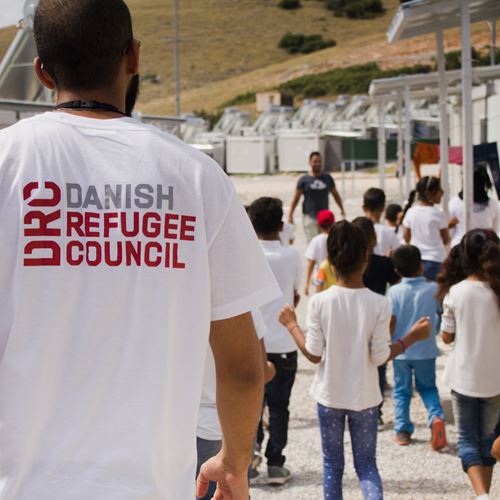On December 16, 2021, DRC was accepted as a formal member of the Grand Bargain 2.0, signalling the start of an exciting collaboration with likeminded humanitarian agencies on the most crucial issues impacting DRC’s operational programming.
“As the key to success is often a clear focus, DRC will initially have a specific focus on Quality Funding and Localisation as a member of the Grand Bargain. These are two clear priorities of the Grand Bargain 2.0 as the most powerful drivers of change across the humanitarian ecosystem, creating a shift toward more humanitarian responses that are truly led by the communities we serve with predictable funding going to the responders at field level. Additionally, it mirrors two of the key areas of the new DRC Strategy 2025,” says Charlotte Slente, Secretary General at the Danish Refugee Council.
The Grand Bargain is an agreement born at the World Humanitarian Summit in 2016 that brings together 25 donors, 12 UN agencies, 22 NGOs, 2 Red Cross Movements and 2 International Organisations who together represent around 84% of all donor humanitarian contributions donated and 69% of all aid received.
Five years on, the performance of the GB was reviewed and in June 2021 all signatories reconfirmed their commitments towards an improved GB 2.0. giving fresh impetus to the process with a new leadership and reinforced processes geared to attain successes.
“The issues addressed by the Grand Bargain identified in 2016 were not new at the time, are still very valid today and probably will continue for some time ahead. They affect all of us from field to HQ level and across all sectors and units. There are no magic solutions to them. However, the Grand Bargain remain the most likely forum to find solutions. Together we can try and make the shift happen,” says Charlotte Slente. “By engaging DRC will have the opportunity to influence the humanitarian reform agenda and strengthens alliances while staying better prepared for the future.”
The Grand Bargain 2.0 is the place where global reforms that seek to ensure humanitarian response is as cost-efficient as possible are debated through eight workstreams: Greater Transparency; More Localisation; Increased Use of Cash; Reduced Management and Duplication Costs; Improved Joint Needs Assessments; A Participation Revolution; Enhanced Quality Funding and Harmonised and Simplified Reporting with Gender and the Humanitarian-Development Nexus considerations mainstreamed across them. Though voluntary, the process is held accountable on improvements towards “core commitments” measured annually through individual self-reports, a third-party overall review, and an annual meeting.
